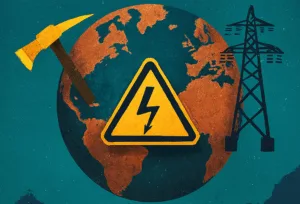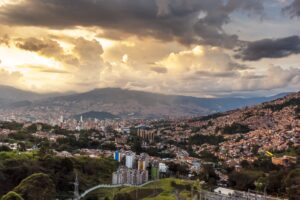There’s a quote I often use—though it’s frequently misattributed to Charles Darwin: “It is not the strongest of the species that survives, nor the most intelligent, but the one most adaptable to change.” I like it because in a world where change is the only constant, adaptability may be one of the most valuable lessons we can learn.
Change can come in many forms. Some are abrupt breaks from the familiar—leaps into the unknown that can go well or poorly. Others are carefully planned, allowing time for adjustment—for transition. Change is binary: it has either positive or negative consequences. And most of the time, it brings with it uncertainty, confusion, and fear.
In the case of the energy transition, this is not an end in itself—it is a path humanity must take to change the way it receives and uses energy. And given the complexity of the system and the potential consequences of poor execution, societies must prepare, and governments must plan and manage it carefully.
After all, it’s thanks to the progressive development of modern energy that we’ve been able to overcome hunger, poverty, and misery. That’s why it’s so important to ensure that as many people as possible—ideally everyone—has access to this energy, so we can continue on this positive trajectory.
It’s no coincidence that Goal 7 of the Sustainable Development Goals (SDGs) is Affordable and Clean Energy. In fact, most SDGs are closely linked to energy. That’s why universal access to modern energy is essential for the proper functioning of society.
An abrupt change in the energy system could have severe consequences for social development and well-being. As its name implies, this change must be a transition—not a disruption, which implies the sudden end of something.
Managing the transition means working toward mutual adaptation, so that all stakeholders adjust to the new reality while minimizing disruption. This includes workers in the oil and coal industries, the regions where these industries operate, and a society accustomed to the current energy status quo.
The invitation here is to think about combining adaptation mechanisms with the ability to shape change—so that the process of going from A to B is focused on positive, collective outcomes. In other words, we need a just transition for all.
Achieving this requires a spirit of co-creation. Governments won’t build a better world alone. Companies can’t change society by themselves. Civil society won’t succeed on its own either. It will take a collective effort, where all parties help build consensus.
The change in our energy system must begin with setting an agenda, describing a vision and objectives, and defining a policy that balances energy security, access, and environmental sustainability. In Colombia’s case, this must be built in collaboration with the economic sectors, regions, and workers who will be at the center of the transition.
Carolina Rojas Gómez
Student, Executive Master of Management in Energy
BI Norwegian Business School


